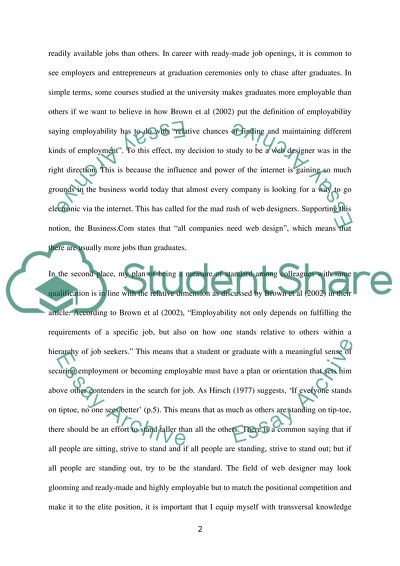Cite this document
(“Employability after Graduation Essay Example | Topics and Well Written Essays - 1000 words - 2”, n.d.)
Retrieved from https://studentshare.org/education/1410286-essay
Retrieved from https://studentshare.org/education/1410286-essay
(Employability After Graduation Essay Example | Topics and Well Written Essays - 1000 Words - 2)
https://studentshare.org/education/1410286-essay.
https://studentshare.org/education/1410286-essay.
“Employability After Graduation Essay Example | Topics and Well Written Essays - 1000 Words - 2”, n.d. https://studentshare.org/education/1410286-essay.


